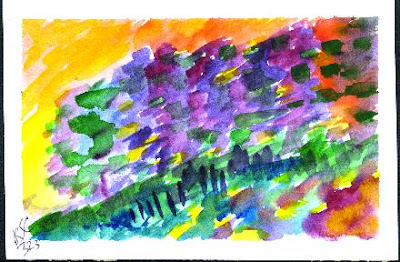
American Life in Poetry: Column 122
BY TED KOOSER, U.S. POET LAUREATE, 2004-2006The chances are very good that you are within a thousand yards of
a man with a comb-over, and he may even be somewhere in your
house. Here's Maine poet, Wesley McNair, with his commentary
on these valorous attempts to disguise hair loss. Hymn to the Comb-Over How the thickest of them erupt just
above the ear, cresting in waves so stiff
no wind can move them. Let us praise them
in all of their varieties, some skinny
as the bands of headphones, some rising
from a part that extends halfway around
the head, others four or five strings
stretched so taut the scalp resembles
a musical instrument. Let us praise the sprays
that hold them, and the combs that coax
such abundance to the front of the head
in the mirror, the combers entirely forget
the back. And let us celebrate the combers,
who address the old sorrow of time's passing
day after day, bringing out of the barrenness
of mid-life this ridiculous and wonderful
harvest, no wishful flag of hope, but, thick,
or thin, the flag itself, unfurled for us all
in subways, offices, and malls across America.
American Life in Poetry is made possible by The Poetry Foundation (www.poetryfoundation.org), publisher of Poetry magazine. It is also
supported by the Department of English at the University of
Nebraska-Lincoln. Poem copyright (c) 2006 by Wesley McNair.
Reprinted from "The Ghosts of You and Me," published by David R.
Godine, 2006, by permission of the author. Introduction copyright
(c) 2006 by The Poetry Foundation. The introduction's author,
Ted Kooser, served as United States Poet Laureate Consultant in
Poetry to the Library of Congress from 2004-2006. We do not accept
unsolicited manuscripts.
******************************


































